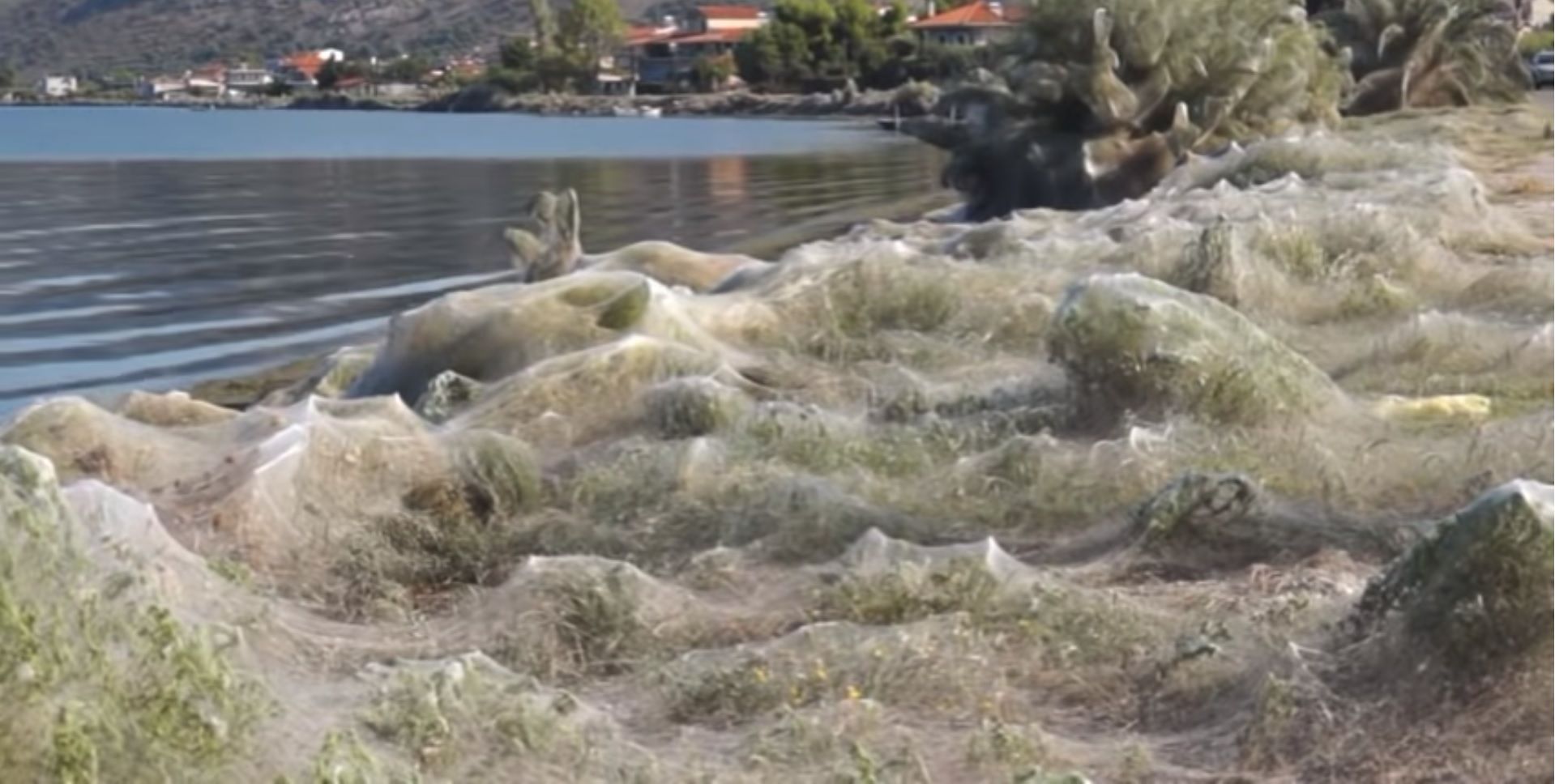
Warm temperatures and an abundance of food prompted an explosion in the spider population of a Greek seaside town—and their cobwebs have now blanketed a 300-meter expanse of the shoreline.
Video footage shot in the western town of Aitoliko shows the webs covering everything from street signs to grass and palm trees in a veil of silk, with what appears to be hundreds of spiders lurking underneath.
According to Greek news website DailyHellas.com, the webs stretched for 300 meters.
A genus of spider known as the Tetragnatha wove the webs, Maria Chatzaki, a professor of molecular biology and genetics at Democritus University of Thrace, Greece, told Newsit.gr.
Warm temperatures, perfect humidity levels for the creepy crawlies and a spike in mosquitos—which they feast on— caused the boom in the population of Tetragnatha in the seaside town, she said.
The spiders themselves are relatively small but are capable of creating large swaths of silk under which to mate.
The phenomenon usually happens towards the end of summer or in the early autumn when conditions are perfect. This occurs once every three to five years.
Arachnophobes disturbed by the images can rest assured the Tetragnatha's stunning ability to weave webs doesn't mean they are harmful: The creatures pose no threat to humans and will soon die.
Related: Ugliest animal ever? Denver Zoo's newborn endangered aye-aye lemur prompts debate
This is far from an isolated phenomenon. In May 2015, spiders rained from the sky in the town of Goulburn, Australia, and similarly covered an expanse of greenery with cotton candy-like webs.
Commenting on what is known as "angel hair," spider expert Keith Basterfield told The Goulburn Post that young spiders in the Australian Outback throw threads of spiderwebs into the air in May and August and "use them as a parachute to detach themselves from the ground and move in large colonies through the sky."
"They fly through the sky and then we see these falls of spider webs that look almost as if it's snowing. We see these vast areas of baby spiders, all coming down at once in the late morning or early afternoon," he said.
Resident Ian Watson commented on a community Facebook page at the time: "Anyone else experiencing this Angel Hair or maybe aka millions of spiders falling from the sky right now? I'm 10 minutes out of town and you can clearly see hundreds of little spiders floating along with their webs and my home is covered in them.
Uncommon Knowledge
Newsweek is committed to challenging conventional wisdom and finding connections in the search for common ground.
Newsweek is committed to challenging conventional wisdom and finding connections in the search for common ground.
About the writer
Kashmira Gander is Deputy Science Editor at Newsweek. Her interests include health, gender, LGBTQIA+ issues, human rights, subcultures, music, and lifestyle. Her ... Read more
To read how Newsweek uses AI as a newsroom tool, Click here.








